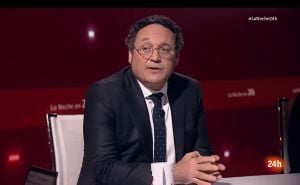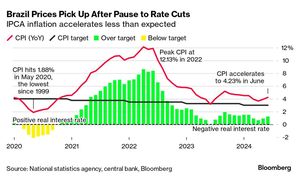Germany has taken a firm stance against the idea of Russia being readmitted to the Group of Seven (G7), following comments from former US President Donald Trump, who suggested Russia's exclusion was unwarranted. Joerg Kukies, Germany's Finance Minister, stated to Reuters on Tuesday, "Russia will not be readmitted" to the elite group of industrialized nations.
This statement underlines Germany's unyielding position as Trump expressed his desire for Russia to return, asserting, "I would like them to come back. I think it was wrong to throw them out. It's not about liking or disliking Russia." Trump's remarks come amid increasing tensions due to the Russia-Ukraine conflict, marking the third anniversary of Russia's full-scale aggression against Ukraine.
During the recent teleconference among G7 leaders, Kukies reiterated the group’s collective resolution concerning Russia's actions, which have made it impossible for the country to regain its status within the G7. The group currently comprises the United States, Japan, Germany, France, the United Kingdom, Italy, and Canada.
The backdrop of this declaration is quite significant. The G7 transformed from G8 back in 2014 when Russia's participation was suspended following its annexation of Crimea and the outbreak of conflict in Donbas, Ukraine. The collective decision to exclude Russia aimed to signal disapproval of its military actions and assert international standards of conduct among member nations.
Meanwhile, addressing economic tensions, Kukies noted the potential risks of trade wars arising from the tariffs imposed by the Trump administration on European steel and aluminum. He remarked, "A trade war between the US and EU can be avoided," indicating both sides are open to negotiations.
French President Emmanuel Macron also participated in the G7 discussions and made official visits to the White House, marking the first European leader to do so since Trump’s second term commenced.
This recent dialogue among G7 leaders not only reflects the complex geopolitical tensions with Russia but also highlights the delicate economic communications required to maintain relations between the US and EU. Both sides seem poised to engage in conversations to alleviate any trade disputes, amid broader discussions of global security shaped by concerns over Russia's current initiatives.
Germany's position, backed by other G7 nations, sets the stage for continued opposition to Russia's participation, reflecting the overarching West's commitment to standing united against perceived aggressions on the world stage. The discussions during this pivotal conference reinforce the notion of diplomatic engagement, even as disagreements on fundamental issues persist.



